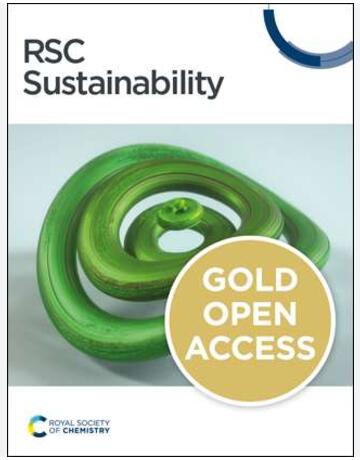Enhancing Capacity to Comply with Sustainability Standards in the Milk Value Chain in East Africa: Challenges, Prospects, and Policy Implications
IF 3.3
3区 环境科学与生态学
Q2 ENVIRONMENTAL SCIENCES
引用次数: 0
Abstract
This paper addresses the need to contextualize sustainability standards and supply chain management in dairy value chains in East Africa, where milk perishability and limited cold storage significantly impact the industry. The study highlights the importance of localizing these standards, given the greater dependence on local supply chains following the COVID-19 pandemic. Drawing on milk standards literature and various interventions aimed at promoting systemic change, this review analyses the capacity of marginalized stakeholders in East Africa’s dairy value chains to meet sustainability standards, focusing particularly on the social dimensions of these standards. The findings indicate that compliance with sustainability and safety standards is predominantly restricted to formal dairy networks, which process less than 20 percent of milk produced in the region. Most milk sales occur through informal or unorganized markets, which face significant barriers to meeting international sustainability benchmarks. The review advocates for the alignment of international sustainability standards with the unique conditions of the informal markets dominating East Africa’s dairy sector. It suggests enhancing stakeholder capabilities and addressing regulatory barriers as necessary steps for improving compliance with these standards. The co-operative model is highlighted as a promising approach to integrating farmers and marginalized value chain actors into the formal sector, thereby facilitating incremental adoption of sustainability standards. The paper identifies strategic entry points for organizing and upgrading the supply chain, including capacity building, certification, and catalyzing farmer groups to compliance and productivity.提高东非牛奶价值链遵守可持续性标准的能力:挑战、前景和政策影响
本文探讨了在东非乳制品价值链中制定可持续性标准和供应链管理的必要性,牛奶的易腐性和有限的冷藏条件对该行业产生了重大影响。研究强调了这些标准本地化的重要性,因为在 COVID-19 大流行之后,人们更加依赖本地供应链。本综述以牛奶标准文献和旨在促进系统性变革的各种干预措施为基础,分析了东非乳业价值链中被边缘化的利益相关者达到可持续发展标准的能力,尤其侧重于这些标准的社会层面。研究结果表明,符合可持续发展和安全标准的主要局限于正规乳制品网络,这些网络加工的牛奶不到该地区牛奶产量的20%。大多数牛奶是通过非正规或无组织市场销售的,这些市场在达到国际可持续发展基准方面面临巨大障碍。本次审查主张使国际可持续发展标准与东非乳制品行业中占主导地位的非正规市场的独特条件相一致。报告建议,提高利益相关者的能力和解决监管障碍是改善这些标准遵守情况的必要步骤。论文强调,合作社模式是将农民和边缘化价值链参与者纳入正规部门的一种有前途的方法,从而促进可持续性标准的逐步采用。本文确定了组织和提升供应链的战略切入点,包括能力建设、认证以及促进农民团体遵守标准和提高生产力。
本文章由计算机程序翻译,如有差异,请以英文原文为准。
求助全文
约1分钟内获得全文
求助全文
来源期刊

Sustainability
ENVIRONMENTAL SCIENCES-ENVIRONMENTAL SCIENCES
CiteScore
6.80
自引率
20.50%
发文量
14120
审稿时长
17.72 days
期刊介绍:
Sustainability (ISSN 2071-1050) is an international and cross-disciplinary scholarly, open access journal of environmental, cultural, economic and social sustainability of human beings, which provides an advanced forum for studies related to sustainability and sustainable development. It publishes reviews, regular research papers, communications and short notes, and there is no restriction on the length of the papers. Our aim is to encourage scientists to publish their experimental and theoretical research relating to natural sciences, social sciences and humanities in as much detail as possible in order to promote scientific predictions and impact assessments of global change and development. Full experimental and methodical details must be provided so that the results can be reproduced.
 求助内容:
求助内容: 应助结果提醒方式:
应助结果提醒方式:


